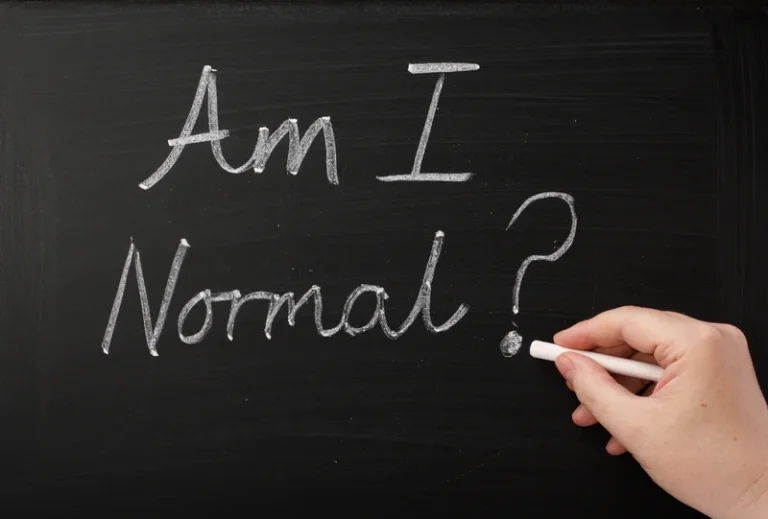
Even with alcohol’s effect on dopamine production, you don’t have to continue drinking. Rehab programs will help break the cycle through detox and therapy — either one-on-one or group sessions. If you drink for long periods of time, it can cause depression, and when you abruptly stop drinking, it can cause anxiety,” says Dr. Anand.

Relationship between ghrelin levels, alcohol craving, and nutritional status in current alcoholic patients
Inhibitory neurotransmitters transiently decrease the responsiveness of other neurons to further stimuli, whereas excitatory neurotransmitters produce the opposite effect. Some neurotransmitters produce longer lasting changes, contributing to processes such as learning and memory. Chemical messengers called neuromodulators modify the effects of neurotransmitters. While alcohol is a relaxant and can make you feel good at first, chronic alcohol use can cause mental health issues.
- Several studies have shown that changes in the DA system in the CNS can influence drinking behaviors both in animals and in humans.
- Acetaldehyde is a highly reactive compound that reacts with several catecholamines (i.e. dopamine and serotonin) in the brain.
- Indeed, chronic alcohol exposure reduces serotonin levels in several brain regions, and there is a large body of evidence indicating a negative relationship between serotonin levels in brain and propensity to self-administer alcohol (Murphy et al., 2002; Casu et al., 2004; Petrakis, 2006).
- This alcohol deprivation effect has also been observed in cynomolgus macaques 8.
Structure and function of inhibitory glycine receptors
Evidence suggests that alcohol affects brain function by interacting with multiple neurotransmitter systems, thereby disrupting https://ecosoberhouse.com/ the delicate balance between inhibitory and excitatory neurotransmitters. Short-term alcohol exposure tilts this balance in favor of inhibitory influences. After long-term alcohol exposure, however, the brain attempts to compensate by tilting the balance back toward equilibrium. These neurological changes occur as the development of tolerance to alcohol’s effects.
Peter Attia
- There is evidence of a link between serotonin deficiency, impulsivity and drinking behaviour which may explain the role of SSRIs in suppressing alcohol reinforced behaviour in some alcohol-dependent patients.
- Moreover, the P rats had fewer serotonergic neurons in the raphe nucleus compared with the NP rats (Zhou et al. 1994), a finding that could explain the reduced serotonin and serotonin-metabolite levels.
The dopaminergic neurons in the VTA are connected to the brain areas thought to mediate rewarding effects. Thus, the serotonin-dependent activation of these neurons could reinforce alcohol-drinking behavior. This scenario suggests that serotonin, through its interaction with the dopaminergic system, may play a pivotal role in producing alcohol’s rewarding effects. The amino acids glutamate and γ-aminobutyric acid (GABA) are the major excitatory and inhibitory neurotransmitters, respectively, in the CNS.
- At the highest level of complexity are neural pathways, sequences of neurons communicating through several brain regions (Shepherd 1994).
- Recent studies also have evaluated the numbers and properties of different serotonin receptors in P and NP rats.
- In addition to dementia, long-term alcohol use can lead to other memory disorders like Korsakoff syndrome or Wernicke’s encephalopathy.
- The neurotransmitter then traverses the small space separating the neurons from each other (i.e., the synaptic cleft) and binds to specialized docking molecules (i.e., receptors) on the recipient cell.
Dopamine levels plummet as alcohol’s effects wear off, frequently falling below normal levels. In contrast to the exhilaration we felt while drinking, this abrupt dopamine dip might leave us feeling gloomy, nervous, or depressed. The sharp rise and fall in dopamine levels might make recovering from drinking extremely difficult and reinforce a cycle of drinking in pursuit of that elusive dopamine high. Positive allosteric modulators of GABAA receptors (i.e., benzodiazepines) have been the gold standard for treatment of alcohol detoxification in the United States, owing to their anticonvulsant and anxiolytic pharmacologic profile. For the study, researchers recruited 26 healthy social drinkers (18 men, 8 women), 18 to 30 years of age, from the Montreal area. The higher-risk subjects were then identified based on personality traits and having a lower intoxication response to alcohol (they did not feel as drunk despite having drunk the same amount).

Detox will clear the alcohol from your system, helping your brain to re-achieve balance. Dopamine production will return to normal, and other parts of the recovery program will offer things that will help your brain boost dopamine levels without chemicals. Therapy sessions will teach you coping techniques to deal with the triggers that fuel drinking. You may also receive treatment for depression at the same time, as it is one of the primary withdrawal symptoms. Therefore, scientists are paying increasing attention to the integration of communication systems in the brain. Although the study of neural integration is in its infancy, enough has been learned to help guide future research.

Investigating Alcohol’s Effects on Memory

Acamprosate used in the treatment of alcohol dependence has demonstrated that its mechanism of action is through its inhibition of the NMDA receptor. Alcohol reduces glutamate levels in the nucleus accumbens and suppresses glutamate-mediated signal transmission in the central nucleus of the amygdala. Some addictive substances affect dopamine directly, whereas alcohol and other drugs have an indirect effect. Alcohol is a small molecule, so it interacts with many neurotransmitters in the brain. Large molecules, like opiates or amphetamines, only stimulate a specific neurotransmitter.
When we’re repeatedly exposed alcohol and dopamine to pleasure-producing stimuli — social media, sugar, alcohol or any number of readily-available substances — our bodies adjust. Then we need more on repeated use, just to feel a the marginal pleasure boost – and, eventually, just to feel “normal.” Reframe supports you in reducing alcohol consumption and enhancing your well-being. Dopamine-HCl and (±)-sulpiride were obtained from Sigma-Aldrich (St. Louis, MO). Cowen M and Lawrence A. The role of opioid-dopamine interactions in the induction and maintenance of ethanol consumption. These alkaloid compounds have been suggested to be responsible for the physiological effects of alcohol as well as the manifestation of the behavioural aspects of alcohol-related disorders.
